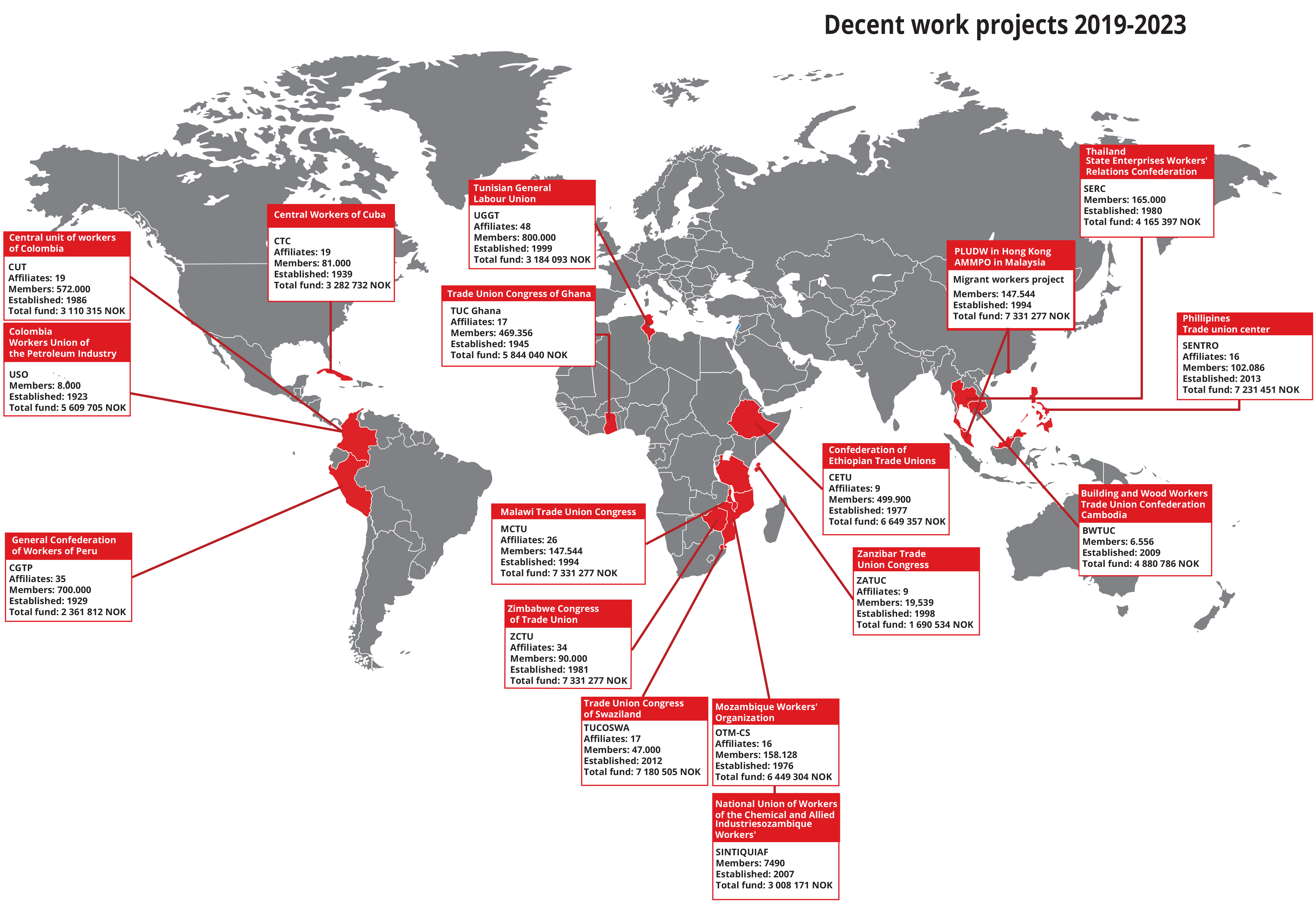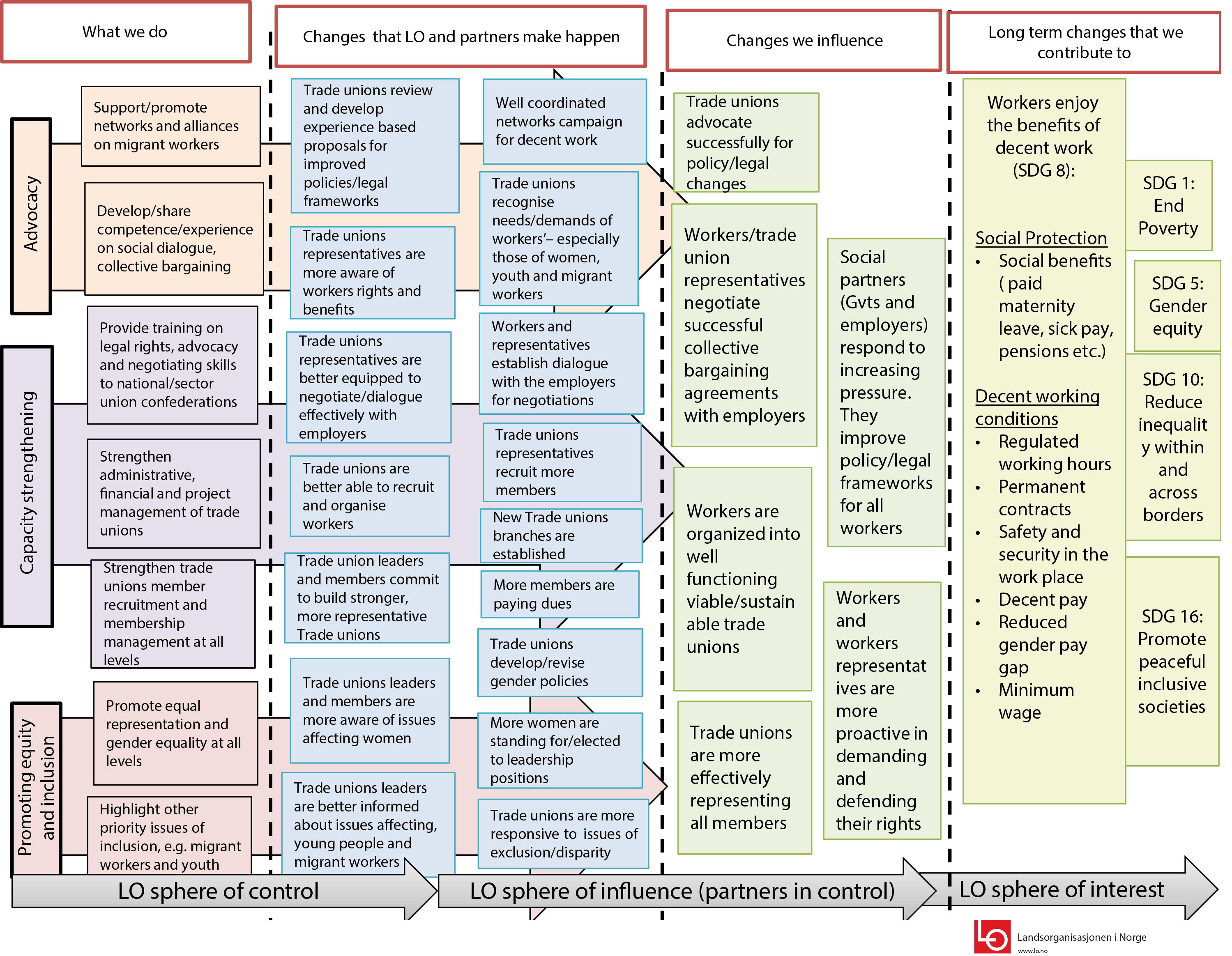The problems we seek to address
The problems we seek to address
About half the world’s population still lives on the equivalent of about USD 2 a day. And having a job doesn’t guarantee the ability to escaping from poverty in most countries. Around one out of two of the world's workforce have insufficient salaries and poor working conditions.
Globally, some 780 million women and men are working but not earning enough to lift themselves and their families out of poverty. Indecent salaries/wages are important global barriers to poverty reduction.
In many countries we see increasing inequality, attacks on trade union and social rights and deterioration of job quality and security. The work life is under pressure. The number of temporary contracts is rising, and many workers can only find jobs in the informal economy. "Over 60 per cent of all workers lack any kind of employment contract...Fewer than 45 per cent of wage and salaried workers are employed on a full-time, permanent basis, and even that share is declining."
Globally, violations of workers' rights are affecting workers everyday life. The trade union movement is under heavy pressure worldwide. Norwegian and international trade union movements are being challenged by globalisation, increasing competition and investments across country borders and changing labour markets. Conflicts, wars and economic crises have led to massive loss of jobs, social unrest and increasing pressure against the trade unions and workers' rights. Many national governments consider trade union rights an obstacle to economic development and disregard fundamental labour rights. In many countries, trade union officers and members are subjected to harassment and victims of violence.
Global inequalities in the labour market are high between men and women and between migrant and local workers. The number of migrant workers around the world is increasing. According to the International Organisation for Migration there are 258 million international migrants in the world.
Half of them are migrant workers, and almost half of these are women. Workers migrating in search of a better life, has been a phenomenon for centuries and is a result of both push and pull factors. The reasons may be political instability, civil strife or poverty. With few job opportunities in their home countries, workers seek employment abroad. Historically, countries have
also worked to attract migrant workers due to lack workers in specific sectors. This may also create “brain drain” in many developing countries. However, in some developing countries like the Philippines, huge remittances sent back home constitute a considerable part of the economy.
Migrant workers live under particularly challenging conditions. In many countries migrant workers are not covered by the labour laws and face discrimination and harassment.
Migrants, especially irregular ones, experience problems at every stage of migration such as illegal recruitment, excessive placement fees, contract violations, unfavourable working and living conditions, or illegal termination of contract. The migrant workers are a vulnerable group which needs particular support and protection. The protection of the rights of migrant workers is an important task for the trade union movement.
Women are often discriminated against in the labour market. Men dominate leadership positions and pay gaps between women and men are still huge, with women being paid an average of 23
percent less than men.4 In many countries and work places women lack basic reproductive and maternal rights. Women are often subject to sexual harassment and abuse at the working place.
Unequal representation of women in decision making positions is a challenge in the political scene as well as in trade unions.
For workers that are both migrants and women, the situation is often even worse. Some women workers are trafficked across country borders as domestic workers, often with complete lack of rights and protection.
Youth unemployment is on the rise. Currently about 13 percent of young people are unemployed globally. The share of youth living in poverty despite having a job, is significantly higher than among working adults. For young women the situation is worse than for young men.5 ("37.7 per cent of working youth are in extreme or moderate poverty compared to 26 per cent of working adults").





